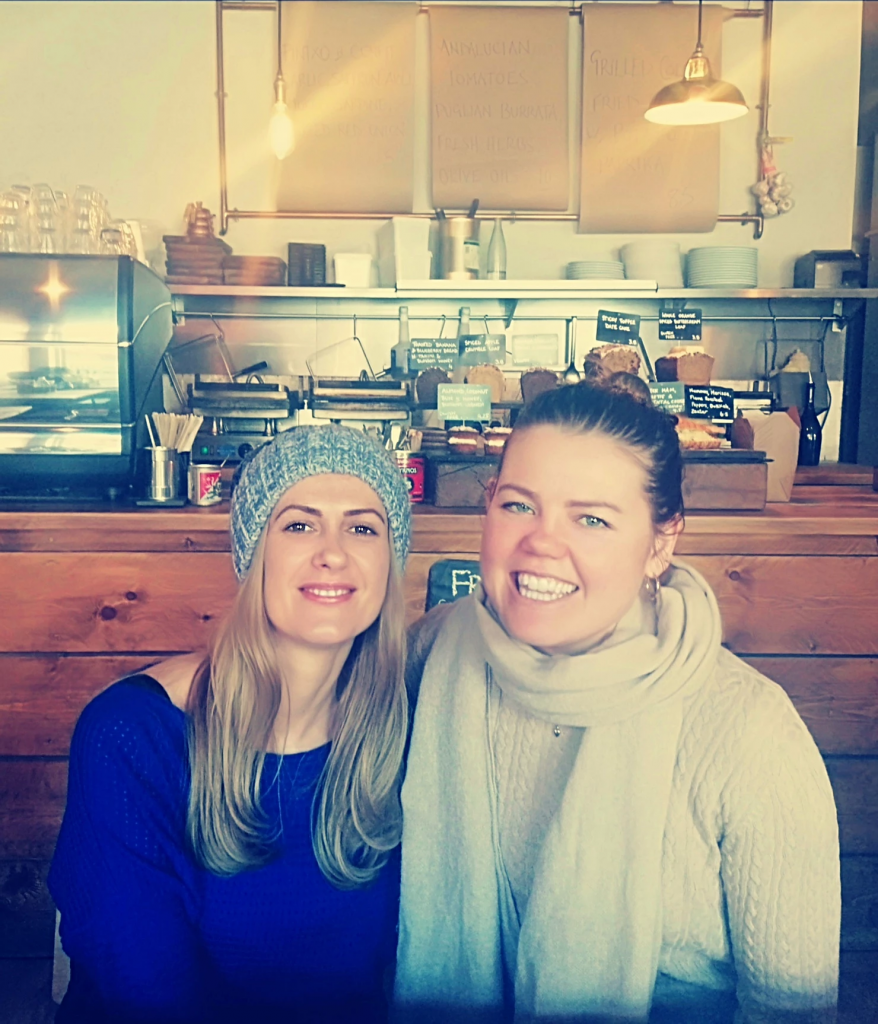Sometimes I still cringe when I hear the word pancreas!
My dad fought against pancreatic cancer for four months! And for that, I call him a hero!
As you know, the prognosis is not sunny at all. Once the symptoms appear it’s usually too late. While it’s still a delicate topic for me, I wanted to voice my thoughts onto a note. I am in the dark as to why the pancreas does not enjoy more publicity.
So here it is, some educational bits and simple tips on how to be on good terms with the pancreas:
The pancreas is a composite organ, meaning it has both exocrine and endocrine functions. It is mostly exocrine tissue. There are several blood vessels surrounding the pancreas: the superior mesenteric artery, the superior mesenteric vein, the portal vein and the celiac axis.

THE EXOCRINE ROLE
The pancreas releases digestive juices into the small intestine. The juices contain digestive enzymes which are responsible for macronutrient digestion.
-
lipase breaks down fat, working together with bile (insufficiency of lipase result in lowered absorption of fat-soluble vitamins and fats in general
-
amylase breaks down carbohydrates
-
protease breaks down proteins
-
sodium bicarbonate neutralises the stomach acid
Note: The digestive juices only start working once they enter the small intestine.
What can go wrong?
- Insufficient digestive juices and enzyme production (lipase in particular)
- Inflammation of the pancreas. Injury to the pancreas can result in self-digestion
Yeah, you heard that right, the pancreas can digest itself, how sad!
There is a long list of gastrointestinal conditions that can develop when the exocrine function is not intact. That is why I love poo talk so much! Well, that is just one of my obsessions. What I am trying to say is that comprehensive questioning around the symptoms and stool checks are both paramount!
THE ENDOCRINE ROLE
The pancreas releases the hormones glucagon and insulin. Glucagon increases blood sugar levels when it is low, while insulin decreases it by facilitating glucose uptake by the cells. When we are asleep, glucagon signals to the liver to release the stored glucose to maintain the blood sugar level.
Note: Did you know that faulty glucose metabolism causes insomnia?
What happens if things go wrong at this end? DIABETES!
I have invited a GUEST BLOGGER to explain more about this. Please READ UP till the end guys. 🙂
A quicky on INSULIN RESISTANCE because you all know it connected with DIABETES:
After we eat carbs, our blood glucose rises. Yep, we got that but why is it important to remove glucose from the blood?
- The cells need energy, hallo!
- Damaged blood vessels
Constantly raised blood glucose needs constant insulin supply!
Now, chronically high insulin levels in the blood lead to not so keen cells and receptors, so guess what? They shut down and become disinterested. Nobody likes too much of anything, right? This means that neither the glucose nor the insulin is cleared from the blood. The blood vessels get damaged, inviting inflammation, and a vicious cycle begins. Cardiovascular disease is the most common complication for anyone with diabetes. Additionally, the constant need to produce insulin leads to pancreas exhaustion.
Unhealthy diets have a lot to do with pancreatic problems and let’s be honest the diabetes pandemic is happening!
SO WHAT FACTORS CONTRIBUTE TO PANCREATIC PROBLEMS?
-
Excess alcohol consumption: according to Pubmed, chronic alcohol consumption (4-5 units daily) is the most common cause of chronic pancreatitis (inflammation of the pancreas) and there is an increased risk of developing pancreatic cancer by 20 times! Alcohol seems to comprise the digestive juices which lead to the development of protein plugs in the pancreatic duct and eventually scarring and thickening of the tissues.
-
Smoking: another major risk factor. Nicotine seems to stimulate calcium release and/or impairs blood flow, decreasing the pancreas ability to produce sodium bicarbonate which affects other digestive organs too. Both alcohol consumption and smoking contribute to the calcification of the tissues!
-
High GI food consumption: pancreas exhaustion, insulin resistance which leads to many conditions such as diabetes, PCOS, metabolic syndrome and many more
-
High fat consumption: the pancreas processes most of the fat we eat, the more fat we eat, the harder it has to work. I am not talking about a good avocado but the fried and processed ones!
-
Gallstones: duct obstruction (pancreatic juice flow is inhibited) is very common, they can also cause the black-flow of bile into the pancreas, resulting in injury.
MY TOP 5 TIPS for PANCREAS FRIENDLY LIVING
- Follow my tips from the LIVER FOR LIFE post. Why? Because a healthy liver reduces the burden on the pancreas!
- Your food intake should be low in fat (fried and processed fat) and sugar but include healthy fats (avocado, nuts, olive and coconut oil);
- Eat more papaya and pineapple to stimulate natural pancreatic enzyme production;
- Consider supplementing with digestive enzymes for a while, especially if you experience digestive issues;
- DAILY SELF-LOVE PRACTICE GUYS! WHATEVER THAT MEANS FOR YOU:) Energetically, the pancreas is connected with LOVE. GIVE YOURSELF ALL THE SELF-LOVE THERE IS, PLEASE!
Needless to say about AVOIDING ALCOHOL and SMOKING, right guys?
What if I said there is a post within a post?
HELLA YES, as the lovely Beth Edwards would say!
Beth is a Registered Nutritional Therapist, with two degrees in psychology, an empath, and the most caring Type 1 Diabetes (T1D) Expert, the only one I know! Being a T1D warrior herself, she understands all the pain points that cling onto this life-long condition.
Other than T1D, Beth has a special interest in gut health, hormonal imbalance, fertility, and immunity.
T1D is a rare form of Diabetes. T2D (Type 2 Diabetes) accounts for about 90% of all cases. Comes as no surprise to say that I do respect this lady too much and so it is no brainer I asked Beth to give her insight on T1D. She is fighting every day with a big smile on her face while helping others to do the same!

Beth’s insights….
SO WHAT IS TYPE 1 DIABETES?
“It’s an autoimmune condition that currently doesn’t have a cure. The immune system incorrectly attacks and destroys own tissue, specifically the beta cells in the pancreas (the cells responsible for producing the hormone insulin).
This is not a slow malfunctioning of the pancreas. It is immediate. Therefore, anyone diagnosed with T1D must immediately start taking insulin, either via injection pens or an insulin pump. People with T1D have to do this forever; unfortunately, there is no reversal of this condition. It needs constant management – people with type 1 have to take on the role of one of their major organs.
Having said that, our insulin-producing beta cells only make up approx. 5% of the pancreas. This means that it’s still able to perform other functions, for example producing pancreatic enzymes for digestion.
As yet, we’re not entirely sure why people develop the condition. Certain genes put people at a greater risk for developing type 1 diabetes, but are not the only factors involved. It appears to be a complex interaction of genetic predisposition and environmental factors such as viral infections, molecules in our food and/or vitamin D deficiencies.
It can affect anyone, it doesn’t discriminate, and it’s most certainly not linked to any lifestyle factors like ‘eating too much sugar as a child’ (a common myth about T1D!)
HOW IS THAT DIFFERENT TO TYPE 2?
Type 2 diabetes is not caused by autoimmunity – it is not ‘all or nothing’ like T1D. No pancreatic cells are destroyed. Insulin is still made by the pancreas, but the body becomes resistant to it and more insulin is needed to bring glucose levels back into an optimal range.
Type 2 has more robust hereditary links and is associated with lifestyle factors such as diet and activity level. Also important to note, according to the charity Diabetes UK, type 2 diabetes is two to four times more likely in people of South Asian descent and African-Caribbean or Black African descent.
How can nutrition help?
When it comes to insulin resistance / sensitivity, you might think this is exclusively an issue for those with type 2 diabetes – especially given that insulin resistance is a core principle of type 2.
Well, it’s possible that insulin resistance is also a problem for people with T1D, especially for those who’ve lived with the condition for a long time. It’s most likely the thing holding type 1s back from better blood sugar control and weight loss (if that’s something they’re struggling with).
How to improve insulin sensitivity
It’s necessary to focus on a range of areas – hormones, nutrition, exercise, sleep cycles, inflammation, biochemistry.
Here are a few key points:
- Increasing exercise, specifically resistance training and weight-lifting. Research also suggests that a combination of resistance and cardio exercise works well.
- Watch the fat, particularly saturated and trans. It’s easy for people with type 1 diabetes to default to fat-based snacks and foods as they have little impact on blood sugars in the immediate term – but they will affect control over a longer period of time.
- Our aim is to balance the blood sugars again, so it’s important to get carbohydrates from low GI (glycaemic index) sources – for example, sweet potatoes, butterbeans, chickpeas, buckwheat, brown rice, porridge oats, quinoa.
- Up those plants. Adopting a plant-first approach to nutrition has been shown to increase insulin sensitivity (a function of increased fibre & nutrients).
- Certain supplements have been indicated to improve insulin sensitivity. For example, alpha-lipoic acid, chromium, myo-inositol and magnesium. It’s really important to work with a healthcare professional if you’re thinking of using supplements – in some cases, you might not need to supplement, or it may even be unsafe if you do.
“Working with a nutrition professional to help you target your individual challenges and blocks. If you’re struggling with insulin resistance, are getting fed up of going round in circles and think my services might suit you, drop me a line at bethedwardsnutrition@gmail.com or take a look at my website www.bethedwards.com and we’ll go from there.”
